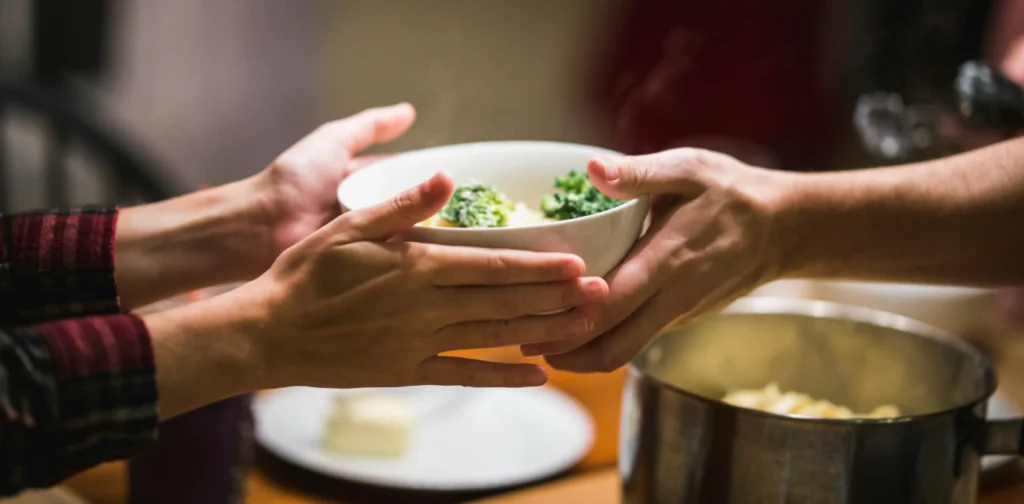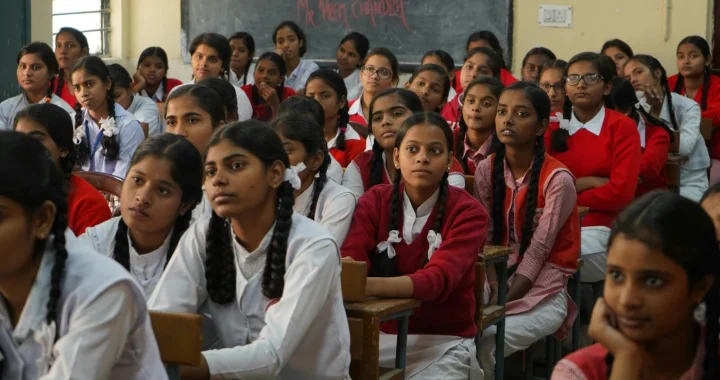Taking Care of Each Other by Sharing Meals

Photo: Dan DeAlmeida on Unsplash.
People we meet, places we live, and information we consume significantly affect our physical and mental wellbeing. When the world seems to be an endless loop of crises, how can we be a good community and care for each other? It can start from sharing meals.
A Time of Crisis
The world throws new challenges as days go by. Slower economic growth and rising cost-of-living mean most people are almost always cash-strapped. The World Bank’s report states that nearly 700 million people live in extreme poverty, meaning they spend less than $2.15 per day.
At the same time, the world is getting hotter. The years 2023 and 2024 consecutively broke the hottest year on record, with catastrophic consequences emerging in its wake. In 2023, Greenland’s ice sheets lost around 2.5 million liters of freshwater per second, resulting in 0.2 mm of sea level rise. Meanwhile, the use of fossil fuels remains high, and deforestation continues.
In Palestine, Sudan, and many other regions, people endure dangerous situations and atrocious human rights violations due to occupation, exploitation, and conflict. Society seems to be regressing at an alarming rate, and witnessing it can be mentally and physically exhausting. How can we cope?
Sharing Meals and Wellbeing
Communities serve as an essential lifeline during difficult times. There are many avenues where we can bond with others; the simplest way, perhaps, is by sharing meals.
In its 2025 edition, the World Happiness Report (WHR) recognizes the role of sharing meals as an indicator of wellbeing. The report is published by the Wellbeing Research Centre at the University of Oxford in partnership with Gallup, the UN Sustainable Development Solutions Network, and the WHR’s Editorial Board.
The report’s Chapter 3 was developed based on a survey by Gallup of over 150,000 people worldwide. Based on people’s experience for the past seven days, two questions were asked: “(i) On how many days did you eat lunch with someone you know? (ii) On how many days did you eat dinner with someone you know?”
The report generally finds a positive relationship between sharing meals and people’s subjective wellbeing. On average, people who share one meal weekly are associated with higher life evaluations by 0.2 points on a scale from 0 to 10.
“This difference is both statistically significant and practically meaningful. A difference of 0.2 points is roughly equivalent to a difference of five places in the global happiness rankings presented in Chapter 2 of this report,” wrote the authors. The rankings present the average life evaluations of country residents based on various life circumstances.
Increased meal sharing also correlates with improved life evaluations, albeit subtly and unevenly. The report also suggests that meal sharing can be associated with several measures of social connectedness. For instance, countries with higher meal-sharing frequencies tend to display higher levels of social support and positive reciprocity and lower levels of loneliness.
Seeking Comfort in Communities
While current findings suggest a positive relationship between sharing meals, wellbeing, and social connections, more studies need to be conducted to further explore the multitude of factors influencing these aspects and possible policies to be implemented.
Still, whenever possible, returning to our communities to seek solace and offer comfort during challenging times can help us feel less lonely. At the same time, world leaders, governments, and other key actors worldwide must take responsibility and implement tangible actions to end crises and ensure a better, safer world for all.
Editor: Nazalea Kusuma

Co-create positive impact for people and the planet.
Amidst today’s increasingly complex global challenges, equipping yourself, team, and communities with interdisciplinary and cross-sectoral insights on sustainability-related issues and sustainable development is no longer optional — it is a strategic necessity to stay ahead and stay relevant.

Kresentia Madina
Madina is the Assistant Manager of Stakeholder Engagement at Green Network Asia. She holds a bachelor’s degree in English Studies from Universitas Indonesia. As part of the GNA In-House Team, she supports the organization's multi-stakeholder engagement across international organizations, governments, businesses, civil society, and grassroots communities through digital publications, events, capacity building, and research.


 India’s Supreme Court Declared Menstrual Health and Hygiene as Fundamental Rights
India’s Supreme Court Declared Menstrual Health and Hygiene as Fundamental Rights  Impacts of E-waste Pollution on Animals and Human Health
Impacts of E-waste Pollution on Animals and Human Health  Africa’s Solar Energy Surge: Why 2025 Was a Breakthrough Year
Africa’s Solar Energy Surge: Why 2025 Was a Breakthrough Year  Agrihoods: Integrating Farms and Urban Neighborhoods into Sustainable Communities
Agrihoods: Integrating Farms and Urban Neighborhoods into Sustainable Communities  Women in Waste Management: Asia’s Circularity Runs on Women. Its Policies Still Don’t
Women in Waste Management: Asia’s Circularity Runs on Women. Its Policies Still Don’t  Embracing the Business Value of Sustainability
Embracing the Business Value of Sustainability